About Us
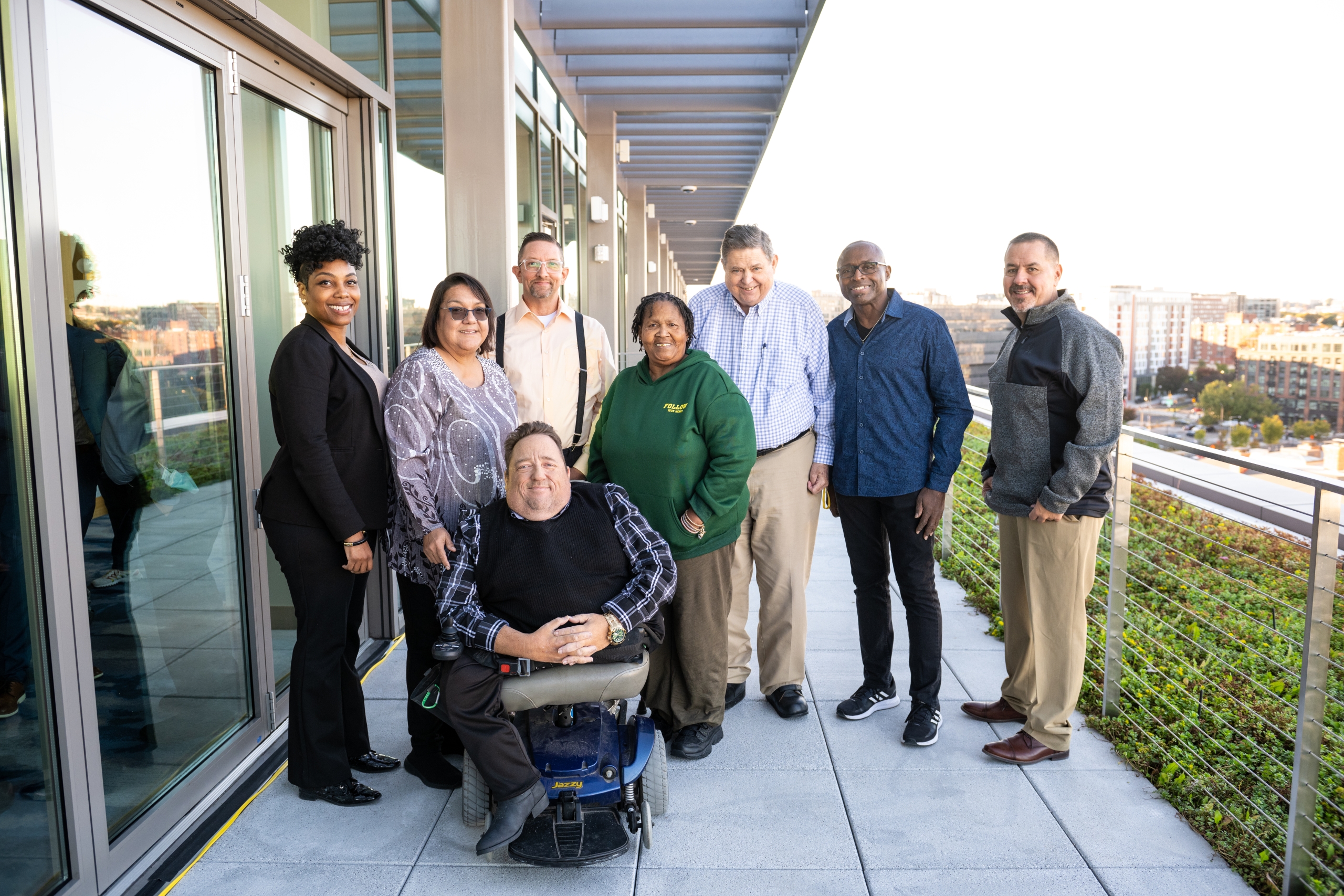
The DPC Education Center is led by a Board of Directors composed of end-stage renal disease (ESRD) patients. Additionally, the Center has an Advisory Council made up of renal health professionals.
Our board, staff and volunteers are truly dedicated to empowering kidney disease patients through education and bring a diverse set of skills and backgrounds that help sustain our mission.
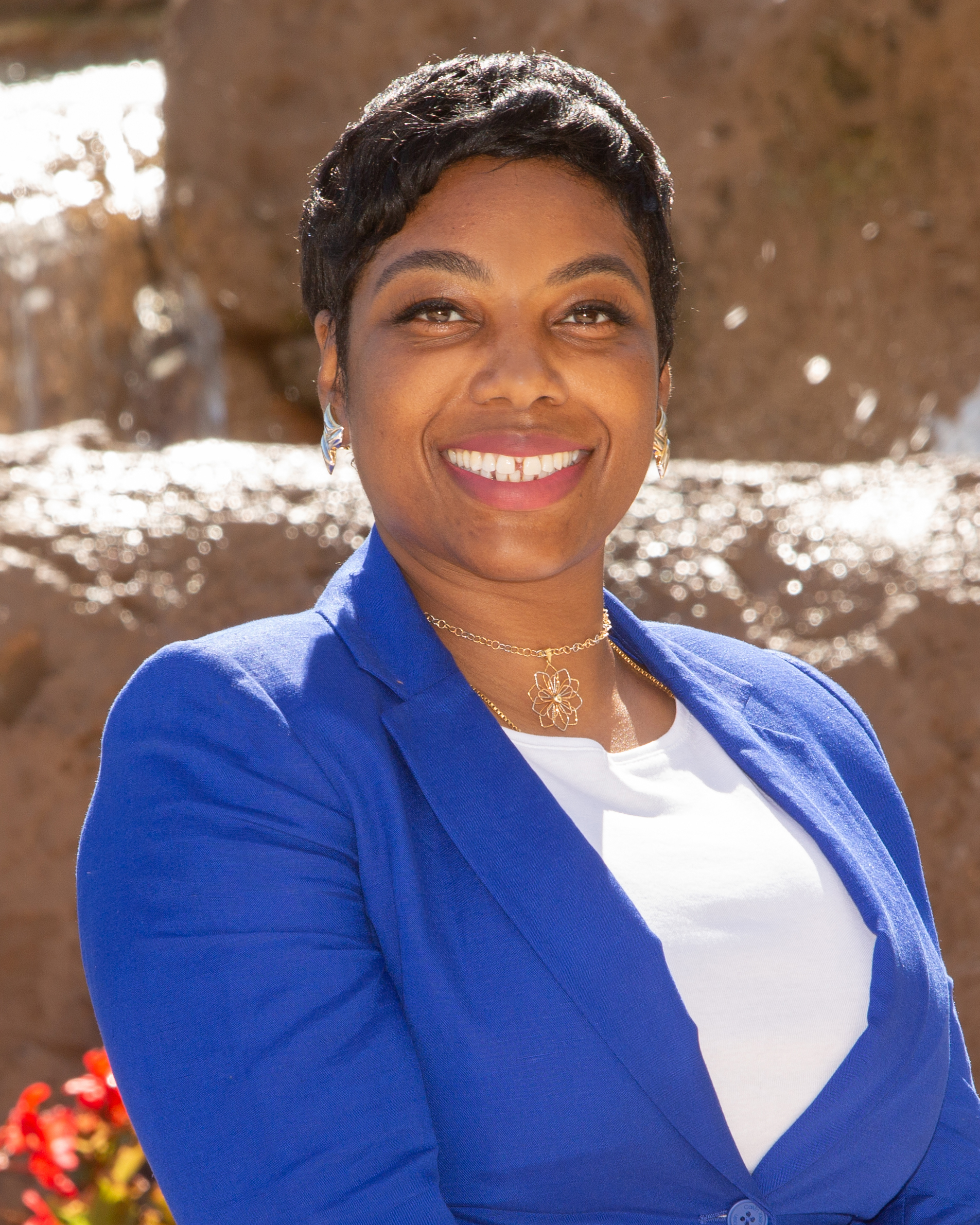
Merida Bourjolly - President
I was born with two kidneys and had to have one kidney removed when I was three weeks old due to an infection. I lived a healthy life with my one kidney with close supervision until around 2014 when I was informed by my doctors that my remaining kidney had deteriorated, and I was going to have to begin dialysis.
During my time undergoing dialysis, I took night classes to become a Dialysis Technician so that I could become informed about dialysis, the dialysis machine and how it was saving my life. Taking this course gave me the confidence I needed in approaching my care and making the right decisions for myself. With this new knowledge, I was able to help in my care by ensuring that my nurses and technicians consistently practiced proper protocol.
I was on dialysis for two and a half years before receiving a kidney from a deceased donor.
My involvement with Dialysis Patient Citizens as a Patient Ambassador has given me the opportunity to continue learning and to use my gift of life to serve as an example and a voice within my community for dialysis patients. Until I attended DPC’s Advocacy Day, I had no direction or experience as to how to go about advocating for dialysis patients. After meeting the DPC staff, members, fellow advocates and Patient Ambassadors at Advocacy Day 2017, I became so inspired to continue advocating with a more educated purpose.
The training day taught me how laws affect those living with kidney disease, how to speak with confidence about our cause, and prepared me to address congressional members on how important it is to recognize dialysis patients and pass bills to improve their quality of care. Having the opportunity speak to other DPC Ambassadors and advocates taught me that it can be a different experience living with ESRD depending on which state you live in pertaining to your health care and insurance.
I am dedicated to continually working to improve my fellow patients’ lives by helping them to stay positive and optimistic about the changes they have to make and understand the power they have in their health care. I want to develop new ways through advocacy to educate communities on issues relating to the care of kidney failure and preventative measures to help others avoid living with ESRD. Through my experience living with kidney disease, surviving kidney failure, undergoing dialysis and now appreciating the gift of life through organ donation, I am making a difference in the lives of so many as a transplant patient.
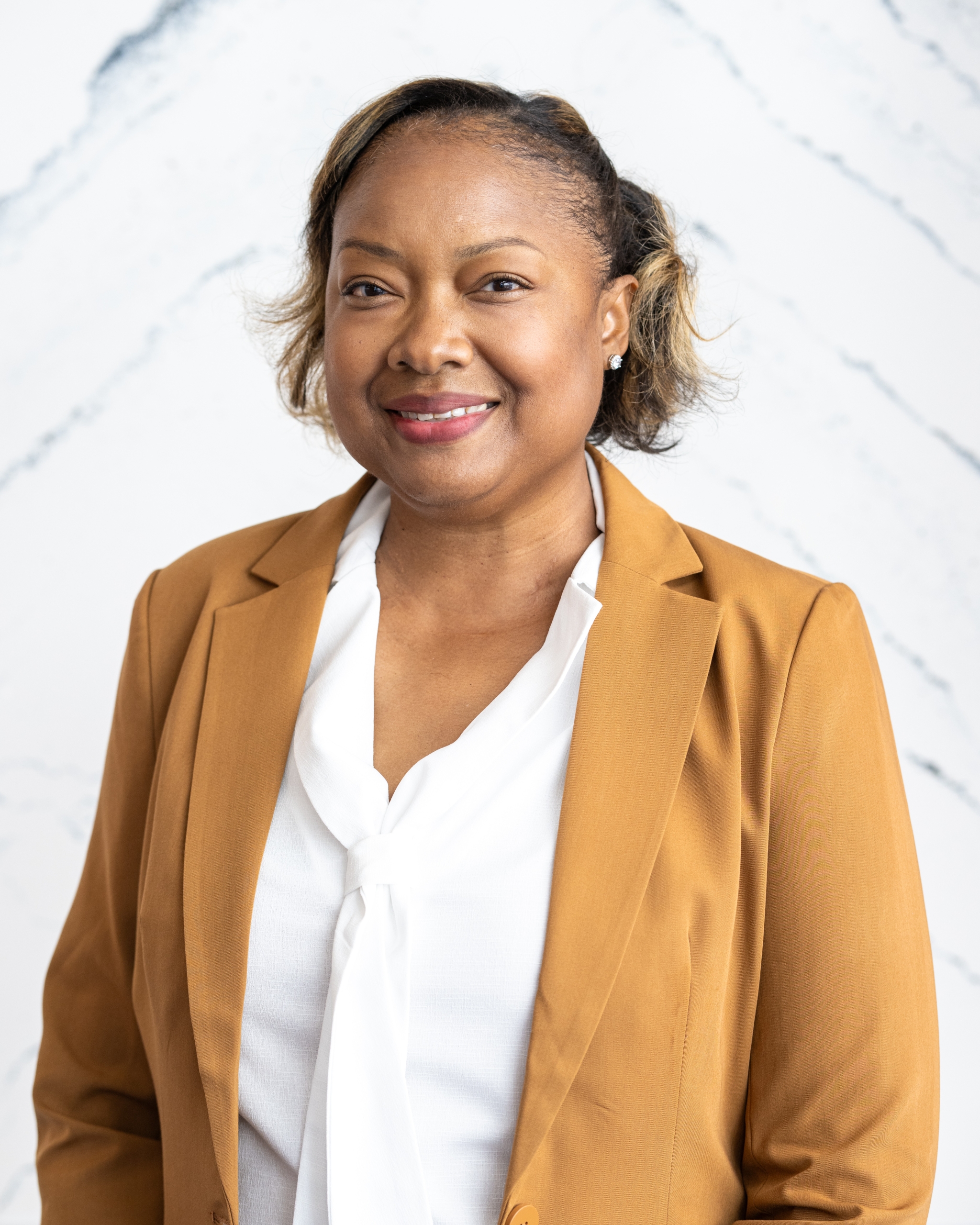
Shekeila Harris - Vice President
My name is Shekeila Harris and I am a transplant patient, advocate, and public health nurse. As an employee with the City of Vineland, New Jersey, I am an expert on the intersection between patient rights, and the implications of current mandates effecting quality care.
Diagnosed at the age of 21, like many Americans, I knew very little about the kidneys at the time. Looking back, I wish that I knew the signs of kidney disease, how an early diagnosis could have preserved my life, or even how to support myself as a patient. So, I’d like to change that. I firmly believe that as an advocate, it is my goal to help patients, care-takers, and providers better understand how people can use healthcare knowledge to make better decisions. A member of DPC since 2013, my projects have included: patient-centered support meetings, facility and dialysis treatment innovation tours, as well as speaking with elected officials on Capitol Hill.
I have also obtained a Masters of Business Administration with a focus on Healthcare Administration from Capella University. My trials with CKD has taught me that advocacy plays a key role in bringing evidence into the policy-making process, leading to a paradigm shift and a much-needed focus and resources to support and improve policy. People who live with this invisible illness should not feel invisible themselves; yet many of the millions of Americans living with kidney disease do. Therefore, it is my goal, to use not only my personal and clinical skills to effectively reach out to lawmakers, but I firmly believe that my acquired business skills will also have a positive impact.
DPC is a vibrant community of support and visibility — a patient-centered experience. This hits home for me. I know all too well that living with kidney disease is a journey that no one should travel alone or in the shadows. Joining the DPC’s board is an honor, and I am grateful to contribute to this important cause.
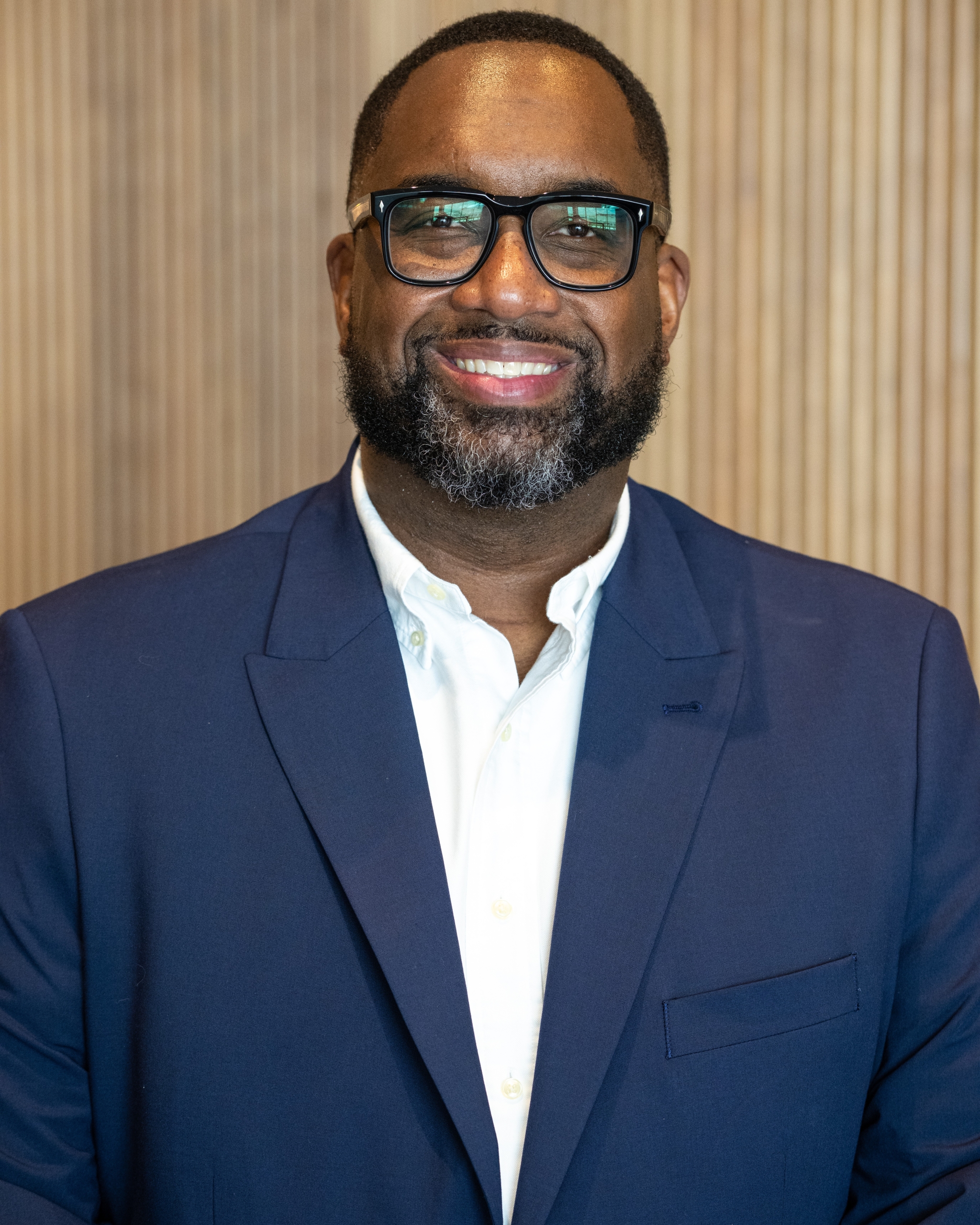
Hasan Artharee - Treasurer
Hello, I am Hasan Artharee. I inherited polycystic kidney disease and started dialysis when I was 35. I am the 4th generation in my family that has been affected by PKD and the 3rd generation to have been on dialysis. I was on hemodialysis for 5 ½ years and received a transplant in 2018.
I witnessed my grandmother and mother on hemodialysis and observed the challenges they both faced during their time on dialysis and after transplant. Their journey’s prepared me for my own dialysis experience providing me with invaluable insight into the challenges and emotional toll associated with kidney failure.
I am extremely passionate about kidney awareness and advocacy for those on dialysis and experiencing the various stages of renal failure. I unintentionally have become a source of information and guidance towards resources in my community for those on the dialysis.
In my free time I enjoy spending time with my family and coaching high school and youth basketball. My wife Celeste and I have four sons, Isaac (25) Khaled (18) Kareem (17) and Emil (13).
I am truly honored and grateful to be a member of the DPC Board of Directors. This opportunity allows me to work alongside dedicated professionals and passionate advocates in the dialysis community. I look forward to contributing my experience, insights, learning from others, and advocating for patients to help ensure they receive the best possible care and support. Together, we can make a meaningful difference in the lives of those who rely on dialysis.
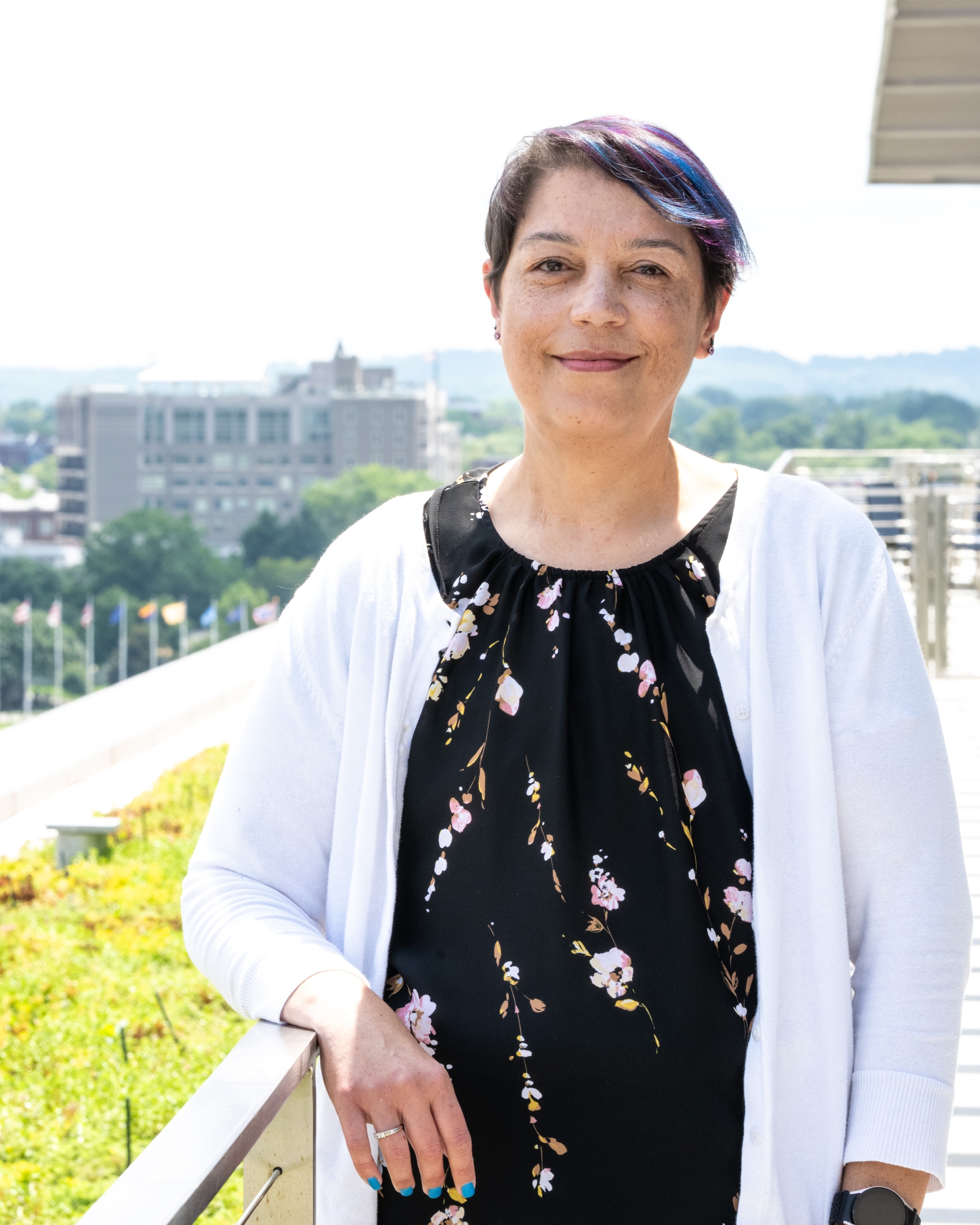
Cheri Rodriguez Jones - Secretary
My name is Cheri Rodriguez Jones, and I am a kidney transplant patient with a long history of kidney disease, dialysis, and transplant. I work full time as a Technical Analyst at a small software company that develops client management and reporting products for non-profit, social service, and government agencies. My husband James and I share two children, David and Dorothy.
I was diagnosed at eight years old with an ultra-rare kidney disease called Dense Deposit Disease (DDD). DDD caused my immune system to progressively damage my kidneys. Little was known about the disease in 1988 due to the limited population for research, so the only treatment available was to try to maintain my kidney function for as long as possible. My kidney function progressed to ESRD, and I began regular dialysis at 19 years old. I received my first kidney transplant in 2010. There were many complications of rejection, and I was diagnosed with a recurrence of DDD which damaged my donor kidney; I returned to dialysis after just over two years. This period of time was just enough for me to go to college and kick start my career though, and I am so grateful for that gift.
Thanks to my otherwise good health I was a good candidate for transplant, but doctors would be more selective and form a treatment plan now that more options were available. During this time, I started home hemodialysis but with my career, it was increasingly difficult to manage the commute to work an hour away, and dialysis once I returned home. I used my personal experience to get to work advocating for nocturnal home hemodialysis. After three years, I became the first patient in the area in the newly created nocturnal home hemodialysis program which greatly improved my quality of life and helped keep me healthy while I waited for another transplant.
In October 2020, I received my second transplant after seven and a half years. I receive regular treatments to keep my DDD under control, but I know that dialysis will be in my future again someday. While I am able, I want to do as much as I can to push important causes forward that protect dialysis patients and their families.
In my free time I enjoy knitting, crocheting, reading, and comic conventions. I have volunteered locally, been a patient advocate, and a peer mentor and educator. I like to say that advocacy is one of the things that we consider “the family business” as we have had multiple generations of family members who have advocated for causes in some form or another and I am excited to serve.
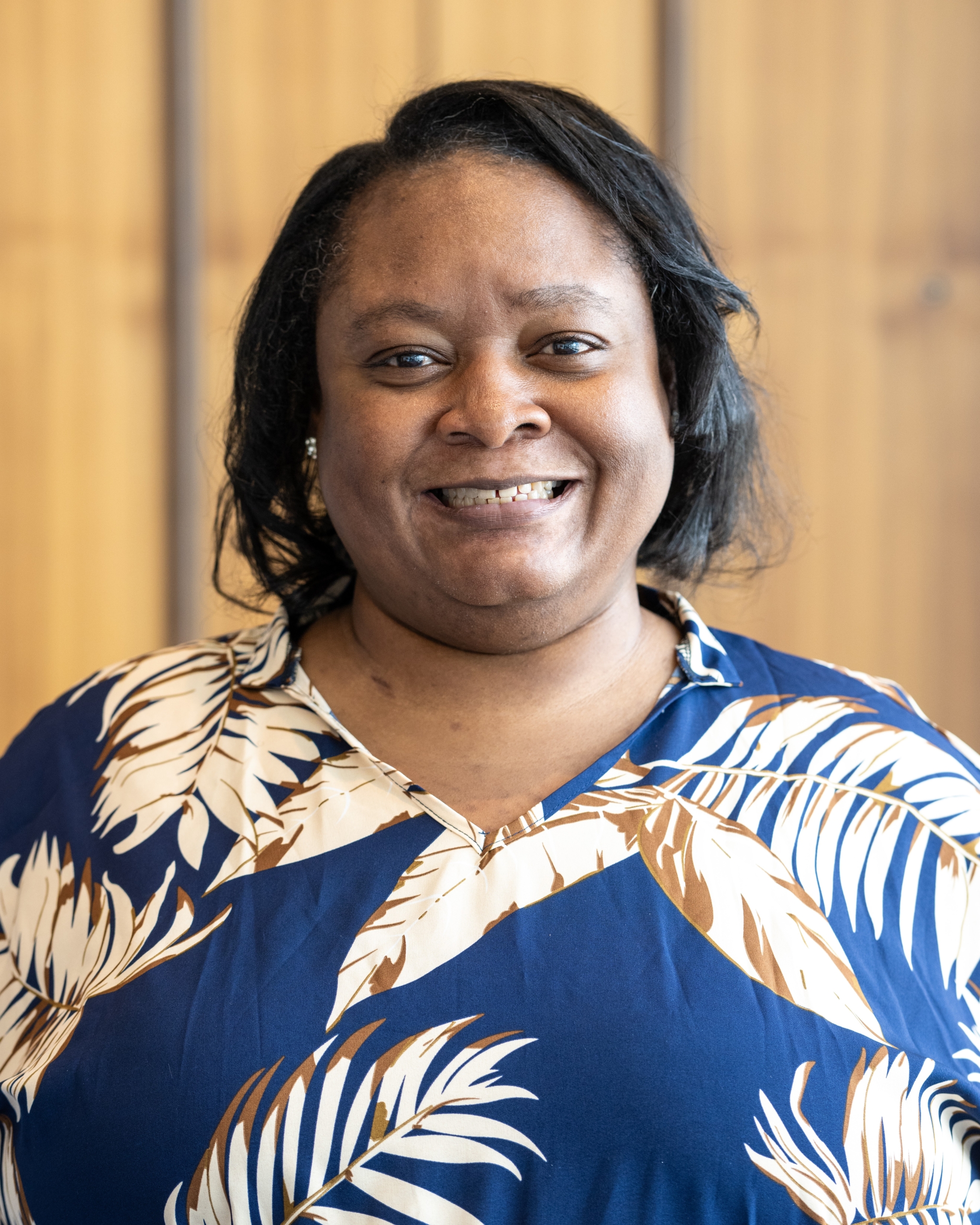
Quiana Bishop
My name is Quiana Bishop. I am 47 years old . I am a dialysis patient of almost 10 years. I am also a single mother of a 20 year old son, who I raised mostly while on dialysis. Kidney disease seems to run on my father’s side of the family because not only was my father a ESRD patient but more recently I found out my uncle has recently joined the dialysis world. Finding out I had to get on dialysis was not an easy fate because I was still raising my ten year old son . I was also in a career that I truly enjoyed which was teaching. At the time I was an infant teacher and I found it so rewarding helping babies into the next stage of life . I found Dialysis Patient Citizens by chance. I was feeling really down because I wasn’t able to do what I love. My mother suggested looking up kidney groups or organizations. I became a peer mentor with NKF first and then DPC popped up. I found them around the time for fly-in time and I took a chance and wrote an essay about myself and my journey with kidney disease and all was selected. It was my first in Washington DC since I was in 8th grade but this was different. I was there for a purpose. First of all it was amazing meeting so many people from across the country who were either going thru what I was going thru it have been where I was. Hearing their stories was so Inspiring. Then meeting my state legislatures was just as amazing. The showed they cared and saw me and my struggle. I left DC with a new found strength, a new purpose, and most of all a new family. I have done events with AKF but I continued to be an ambassador until my friends at DPC encouraged me to join the board. After awhile I was selected as secretary of the Board, then shortly after I was voted in as Vice President. A very short time after I found my self as President and it has been truly my honor to lead the board further into the future. DPC has given my life new purpose and I am dedicated to leading the way. I look forward to meeting new ambassadors, working with current ambassadors and continuing going strong with my fellow board members and striving to continue making Dialysis Patient Citizens the best kidney organization there is .
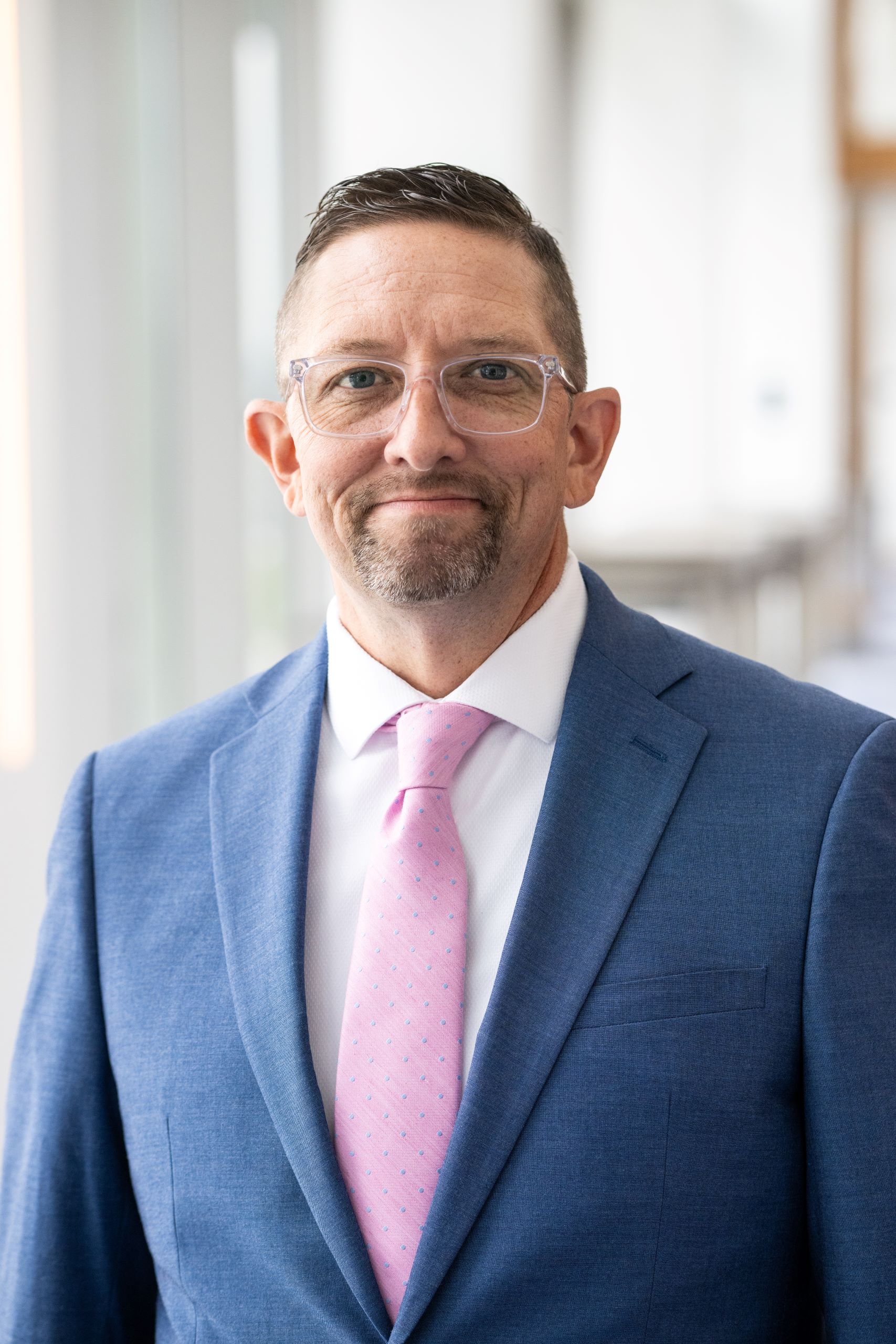
Gene Blankenship
Hello, I am Gene Blankenship. My family and I live in a small town located in Northeastern, Oklahoma in the heart of the Cherokee Nation. My first memory of kidney disease was watching my dad as he treated at home around the age of 10 (1988). He passed when I was 12 years old from complications of kidney disease. His dad, my grandpa, also passed too soon due to complications from kidney disease. I have lost other relatives who also suffered from ESRD, and I have some who are currently on dialysis. I was diagnosed with PKD in 2003. I found out I had end stage renal failure from a routine doctor’s visit. My blood pressure was the first sign. I currently treat at a dialysis clinic on the Cherokee Nation Reservation three times per week. I am on three separate transplant lists in two separate regions of the United States. I am listed at The University of Arkansas Little Rock (WPS!!!), Integris Health System in Oklahoma City, and St. John Ascension in Tulsa, OK. Kidney disease, specifically Polycystic Kidney Disease, has been a significant passenger in my life and has caused most life decisions to be reevaluated. I want to help those who are in the kidney failure fight.
As a former State of Arkansas and State of Oklahoma Child Abuse Investigator, I quickly realized the need for representation amongst my fellow state workers. After two years with the State of Oklahoma, I transitioned to Oklahoma Public Employees Association where I could assist other state employees with a wide range of issues. My job takes me across the state of Oklahoma as the Northeastern Oklahoma Representative. Oklahoma Public Employees Association is a state employee led organization. I speak on a daily basis with both active and retired state employees about improving pay, benefits, grievance assistance, mediation, legislation, and much more. Oklahoma is home to 39 federally recognized tribes, and I am proud to be a tribal member of the Cherokee Nation.
I am thankful and fortunate to have the opportunity to serve on the Dialysis Patient Citizens Board of Directors. Advocacy is now a must in our society. Everyday Americans have limited access to legislators in D.C., which makes the mission of DPC that much more important. I cannot stress the importance of your unique story. It needs to be told. I would encourage you to become a patient Ambassador, make phone calls, write letters, and become involved in your area. It only takes one drop of water to start a ripple effect of change.
I am asked all the time about my positive attitude towards my kidney disease journey. My motivation is from my family. My four beautiful, wonderful kids Addyson (17), Dawson (16), Colton (14), and Gideon (4 going on 30). I want to see every graduation, wedding, birthday and every second in between. Therefore, my focus is my health along with improving the healthcare of others. It would be impossible for my wife to be any more supportive. Stacy is absolutely my biggest cheerleader. I could do nothing without her and my family. I am a blessed man surrounded by the best family and friends.
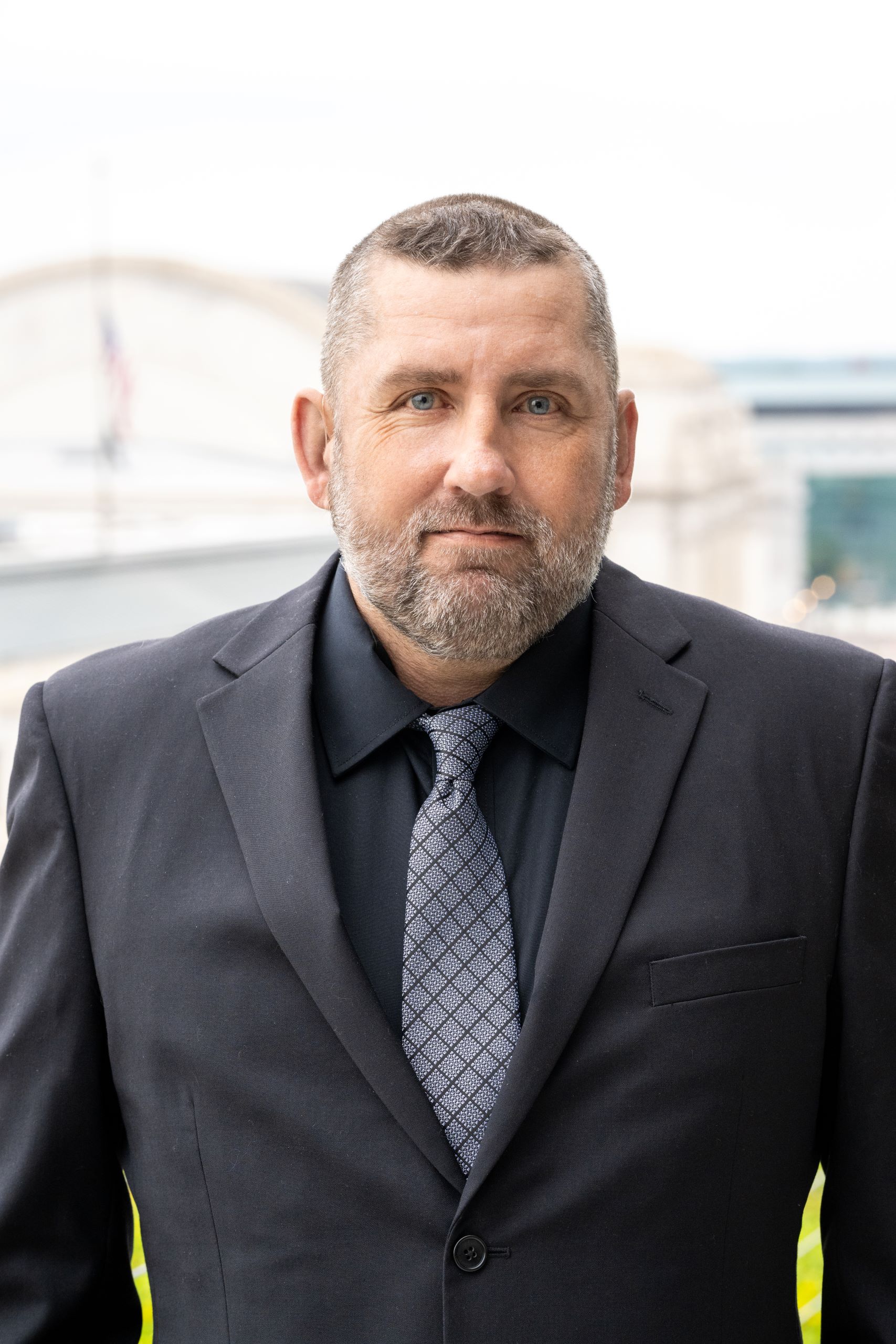
Adam Goldstein
My journey started at 20 when I was diagnosed with stage 3 Testicular Cancer that spread to my lymphatic system, liver, and lungs. As a result of extremely aggressive chemotherapy, I wound up going into acute renal injury requiring temporary dialysis for about six months. After that, I finished my degree at University of New Haven in Criminal Justice and, because of the many times I required an ambulance, decided to get my EMT. My wife and I got married in July of 2006 and after a few months, my kidney function started to tank. I was fortunate that my adopted mother was a match, so I had a preemptive transplant in October of that year. I spent my time working as an EMT, ER Tech, and Public Safety officer for a local university. Then in December of 2008 the worst-case scenario happened and I lost the transplant. I initially did Peritoneal Dialysis, but after a couple years wound up with a massive infection, landing me in the hospital for a couple of months. Due to the surgeries and blood transfusions, I am no longer eligible for transplant. Since then, I have dedicated a large amount of my time to various organizations including IPRO ESRD Network of New England, Donate Life CT, New England Donor Services and, of course, DPC. Currently, I serve as the Assistant Chief of Easton EMS as an EMT where I have been for 22 years. I enjoy telling my story to various groups ranging from Driver’s Ed classes up to PhD research teams. I am a firm believer that, through education and advocacy, we can affect change in legislation, as well as individual understanding. My ultimate goal is to help break down the disparity of resources and support for both dialysis and transplant patients.
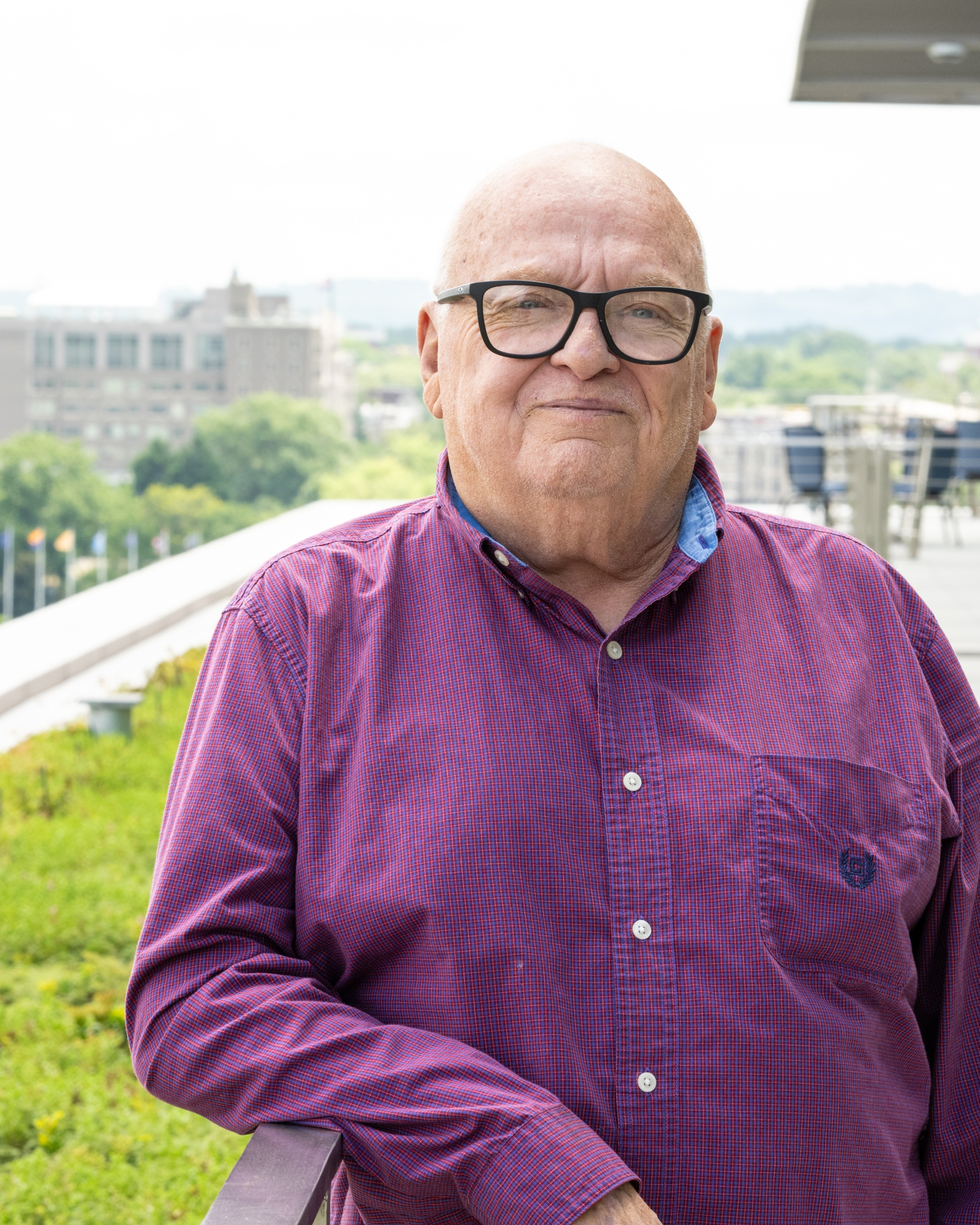
Arthur Hill
Arthur L. Hill, a resilient dialysis patient of 15 years from Bedford, Indiana, has transformed his health journey into a mission that touches the lives of countless others facing similar challenges. Through his unwavering commitment to clean eating, consistent exercise, and becoming thoroughly informed about his healthcare needs, Arthur embodies his core philosophy: “You are your best advocate.”
With nearly 30 years of expertise in consulting with distressed assets, Arthur now applies his sharp analytical skills to exploring how revolutionary advances in artificial intelligence and quantum computing are poised to transform healthcare dramatically.
Beyond healthcare, Arthur’s compelling written work delves into government policy and strategic leadership. His influential, inspirational writings on overcoming chronic illness have sparked renewed hope for patients nationwide, touching countless lives with his message of resilience.
A passionate healthcare advocate, Arthur was instrumental in passing Indiana Senate Bill 125, a landmark legislation that reduced monthly Medigap premiums for dialysis patients under 65. This achievement demonstrates his dedication to making quality healthcare more accessible and affordable for those who need it most, particularly in vulnerable communities. His grassroots approach to advocacy has created tangible changes in the lives of countless Americans with kidney disease.
As a member of the Board of Directors, Arthur is passionate about advancing Dialysis Patient Citizens’ (DPC) mission. He brings professional expertise and the invaluable perspective of someone who has walked the difficult path, making him uniquely qualified to help others navigate the often-confusing world of healthcare with confidence and dignity. “I look forward to sharing my insights on projecting DPC into the future of dialysis advocating,” says Arthur. “Together, we can create a healthcare landscape where patients are empowered, informed, and receive the quality care they deserve.”
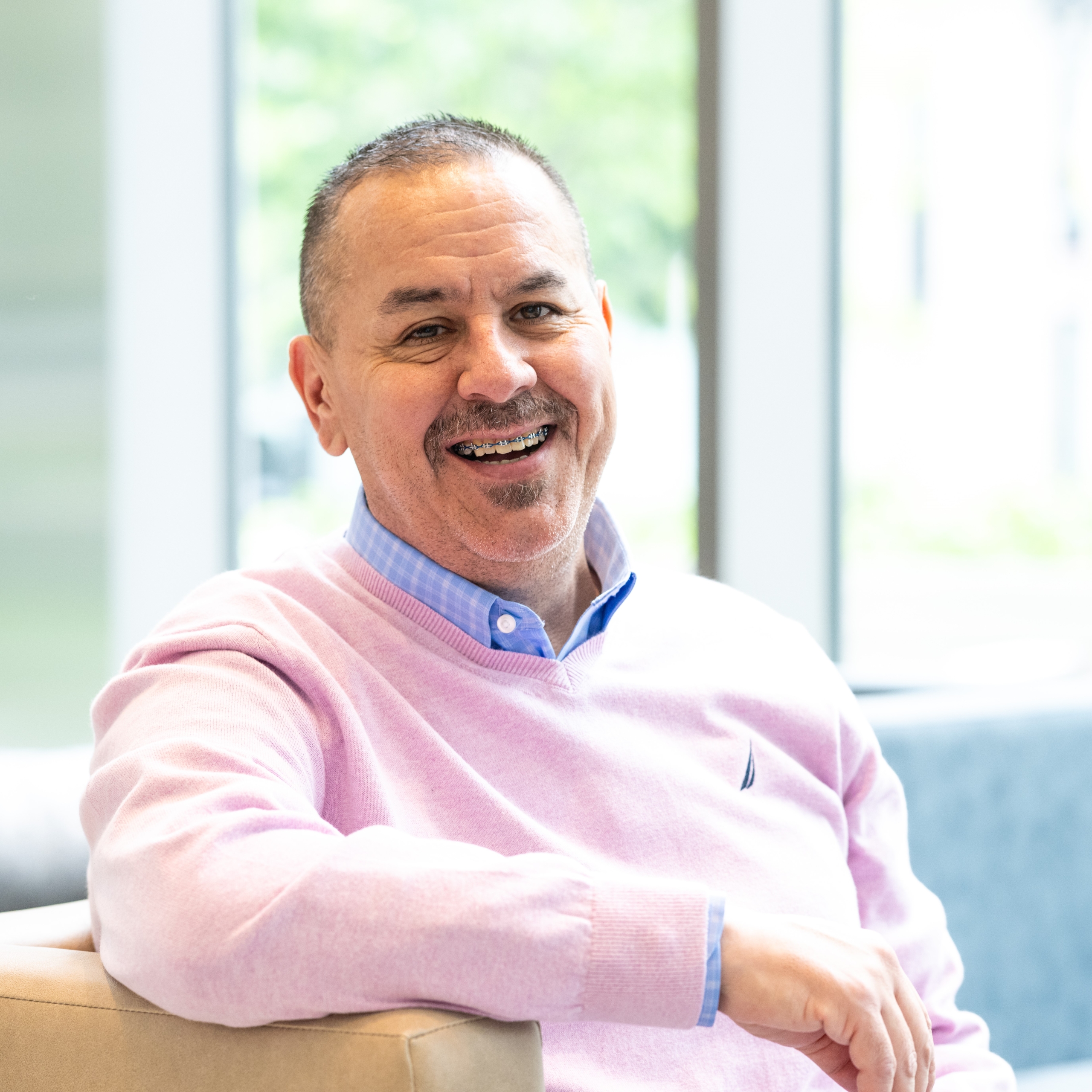
Adrian Miller
Becoming a member of the Board of Directors has taught me so much about advocacy and how I should be taking charge of my own health. DPC fights every day to make sure patient care is the number one priority. I was blessed in 2018 to have a transplant after spending six plus years on dialysis. Those years taught me so much about the different ways patients cope with ESRD and being hooked to a machine. I tell patients all over that being on dialysis saved my life which, I know that sounds a little weird, but it has. I was a heavy alcohol drinker as well as a recreational drug user and was going nowhere in life.
After being diagnosed with ESRD, I decided to change my life and become a more trusting and caring person. I just celebrated 12 years of being clean and sober.
I have two grandsons that keep me very busy outside of my Advocacy work. I also am very passionate about coaching Baseball for local kids in the community I live in.
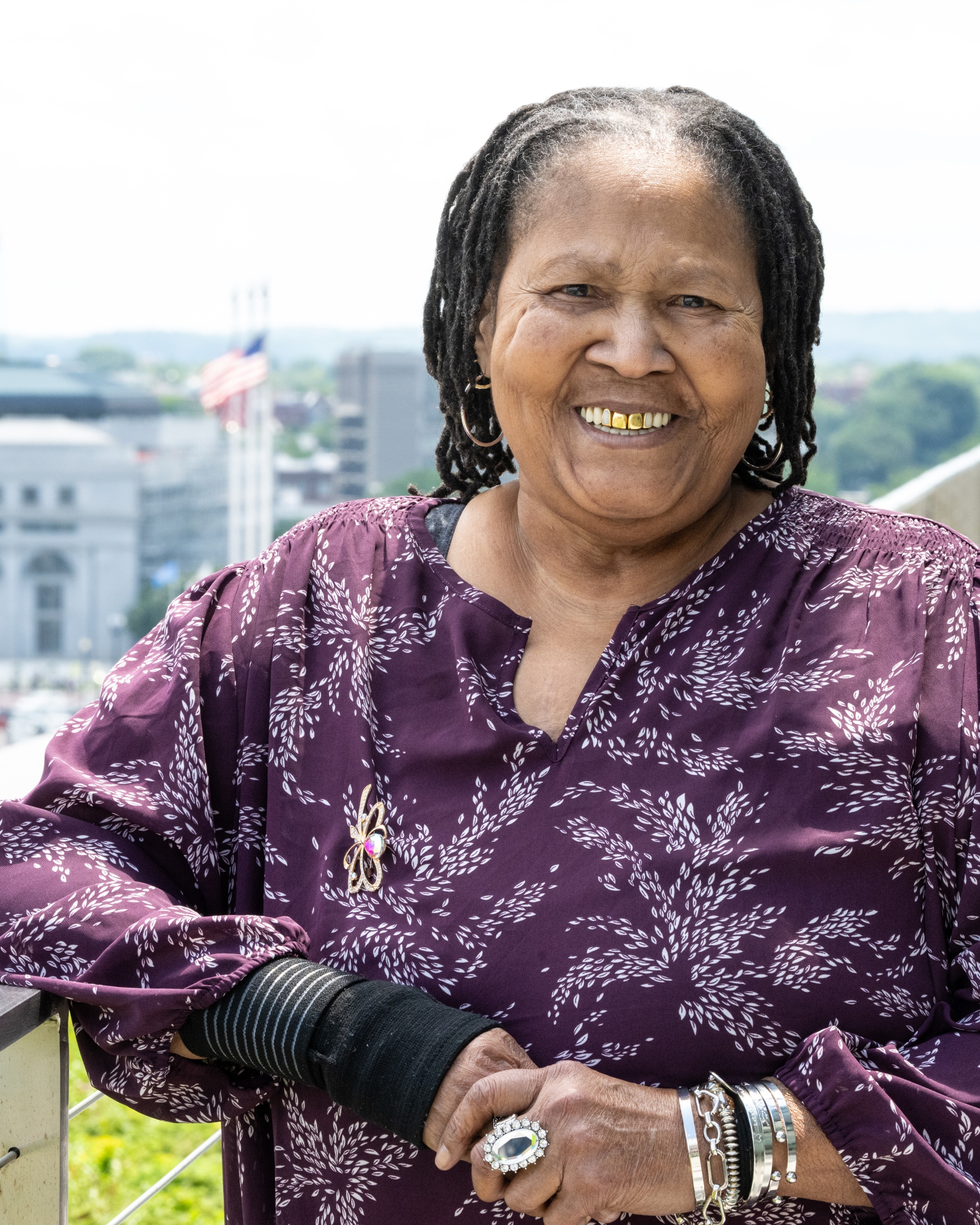
Maria Robinson
I am an ESRD patient living in Baltimore, Maryland. My kidney disease started when I was 12 years old, when doctors diagnosed me with systemic lupus erythematosus (SLE) and hypertension. I have survived open-heart surgery and a left leg amputation, never letting either stop me or slow me down.
At the age of 33, I started in-center hemodialysis, which changed my life—not in a bad way, but in a good way. I learned that life does not end with dialysis, and I worked as a set-up technician for three years. The position gave me the opportunity to learn and understand the process from both sides, making me the bridge between patients and staff.
I was introduced to DPC to through my facility administrator, who hired me, and I became a Patient Ambassador. I have rallied on Capitol Hill, had lobby days in my center with visits from Members of Congress, and held healthcare booths at local churches and town events.
I love pre-education and teaching, as I worked in the school system as a computer paraprofessional. I have been to college and technical school, involved with ESRD NCC Network 5 as a PAC (Patient Advisory Committee), a subject-matter expert with an interest in emergency preparedness and a certified peer supporter.
DPC has now welcomed me as a board member. I hope with years of in-center hemodialysis I can bring some experience and expertise to this position and take some information back to patients by reassuring them that we are here working for them for better care and assistance from our policy makers. I want our policy makers to hear us and to know we are all just trying to live as normal lives as we can in a healthy and safe environment.
As a board member I will bring fairness and respect to this title. My advocacy skills will be at their best. Never will I speak low, but my voice will echo so that it can be heard all over the world for what I stand for as an ESRD Patient.
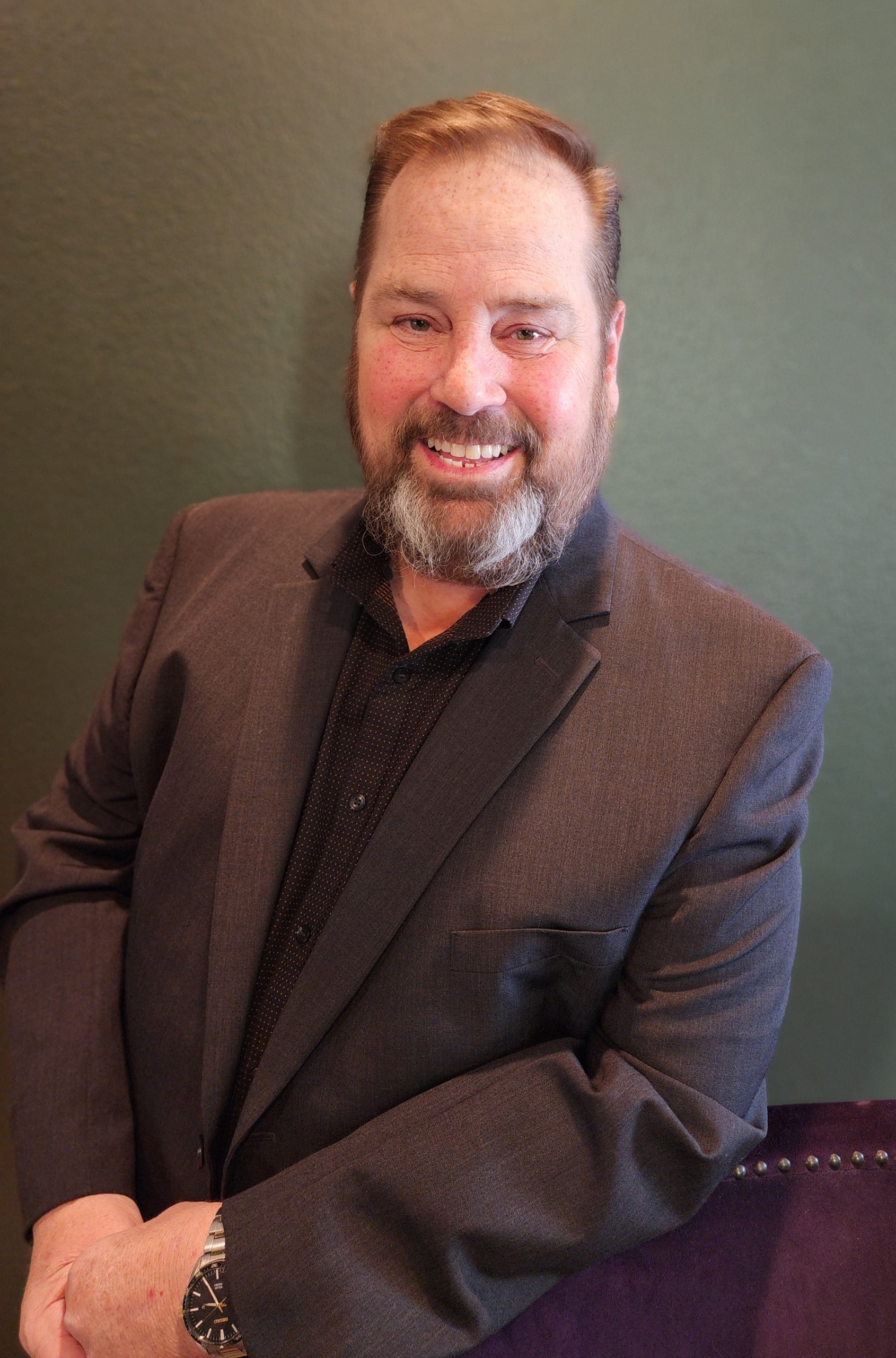
Ken Stephens
Greetings and welcome to DPC!
I’m Ken Stephens. My family and I reside in Northwest Louisiana in the Shreveport area.
My journey in kidney health and ESRD began many years ago.
After several years while I was in the Army, a routine physical picked up some anomalies. After many tests and several doctors’ visits, I was diagnosed with IgA Nephropathy
IgA is an autoimmune condition that causes destruction in the nephrons, which are the filtering mechanism within the kidneys. This is a condition that is congenital and tends to run in families. I was closely followed by doctors for around thirty years with only minor effects on my outward health. Steadily over time, my kidneys were being pounded by my own body’s immune system. I later learned I have a long family history in kidney challenges. My Grandfather and later my Dad succumbed due to kidney failure. I also had a great-grandmother with ESRD.
I was also in the blur of raising three great children with all the wonderful craziness that comes along with that.
In 2016, my condition had progressed to the point where I needed to begin dialysis. I was lucky to still have some residual function in my kidneys. My doctor wanted me to begin dialysis in an attempt to prolong my barely functioning kidneys. I made the decision to use peritoneal dialysis, mainly because it seemed the least invasive to my lifestyle. I continued to work, travel, and live my life to the fullest, with my lovely wife and family. During this time, I traveled a good bit with my career working in the beverage industry.
Once our children were grown and living their own lives, our pace slowed down a bit. I retired from the beverage business as the heavy travel demand became a burden. Moving my machine and supplies on each business trip was just a bit much for this stage in my life. Instead, I began following an interest I have had since I was a child. I moved to New Orleans for a year and attended culinary school. Long days in the kitchens, evenings studying, followed by PD dialysis at night was a challenge that I embraced. It was such a fulfilling time. Sheree and I saw each other on most weekends, and we both loved living and working in a city we have both always had a soft spot for.
In 2022, I contracted Covid like most of the country. This had a huge impact on my kidneys and basically knocked out the remaining function I had in my kidneys. My PD time on the machine had progressed to twelve hours plus each day and every day, which severely impacted our lifestyle.
I made the decision to transition to home hemodialysis at that point, as it would give us much of our time and lives back. It became a huge improvement as we continued traveling and living our lives.
I was blessed with a transplant in August of 2024. A precious deceased donor gave me a gift, something that I can never reciprocate. Organ donation is such an important gift. In the blink of an eye, it can renew the lives of several people from one incident. Live donation is just as powerful. Ironically, I had been listed as a donor before my disease and my wife was in the process of becoming a donor on my behalf, when my transplant came through.
We were so excited when we came across DPC, as my wife, Sheree and I were looking for an avenue to help people in this life. I’ve met many people in waiting rooms, clinic visits, and hospitals along this journey. This can be a difficult life and I’ve heard many stories from these hardy souls that I’ve met along the way. Most people outside of our community have no comprehension of the challenges we face, as usually we look and act “normal” on the outside. These are the people I represent through DPC. We have a responsibility to improve the future for these people and the ones that do not yet know they will be on this path.
I’m so pleased to be a member of the DPC board. I look forward to working with this powerful organization to help turn the tide for kidney effected people now and into the future.
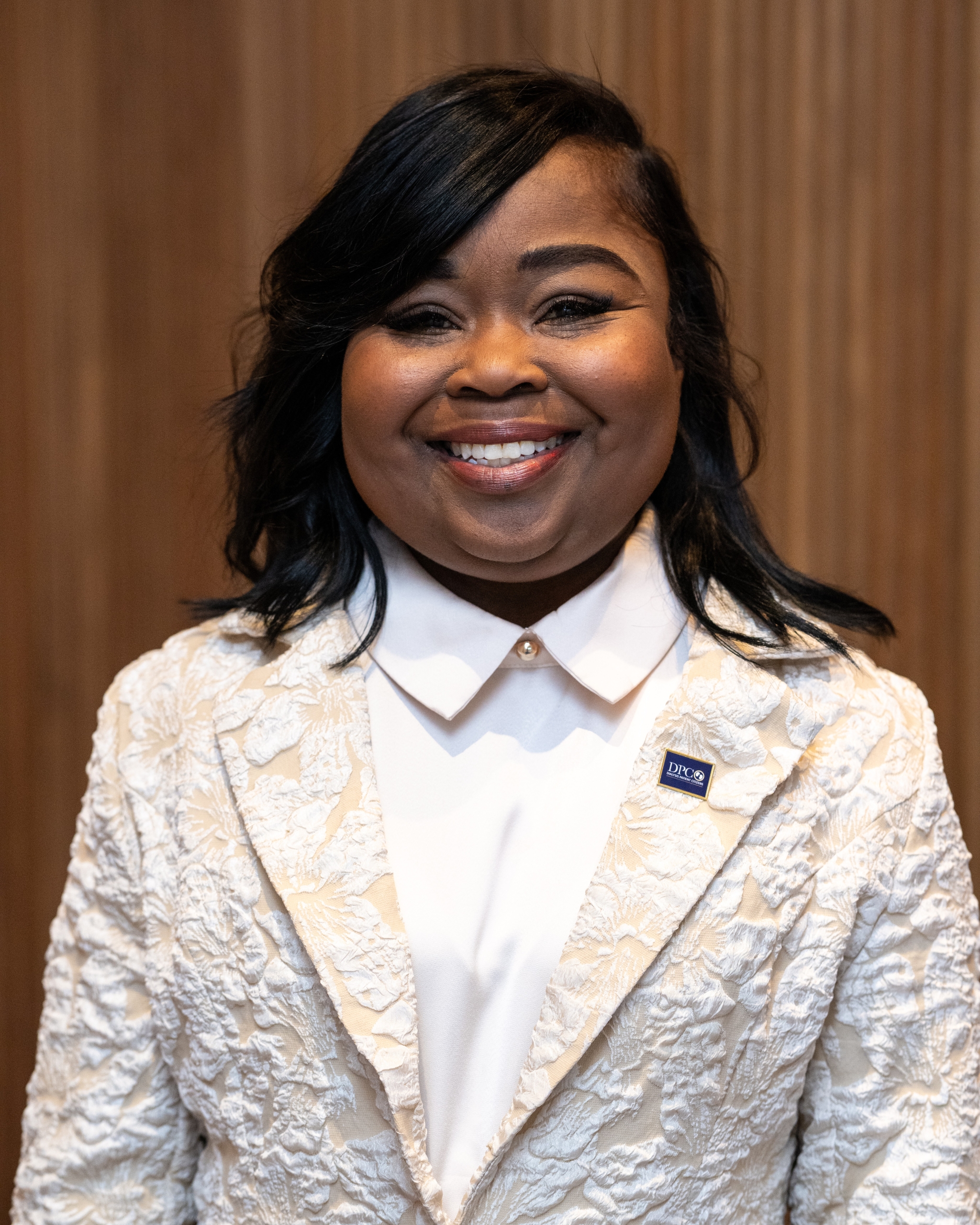
Alethea Walls
I’m Alethea, and my journey is a testament to resilience and hope against seemingly unbeatable odds. At 14, my life took a drastic turn when my kidneys failed; I was diagnosed with Rapidly progressive glomerulonephritis (RPGN) and experienced peritoneal dialysis and hemodialysis. My life was forever changed for myself and family. Eventually I received my first kidney a month before my 19th birthday.
At 21, I lost my first kidney transplant. Struggling to be ‘normal’ made me juggle with noncompliance. After losing my first kidney, I promised to share the importance of compliance and education. I’ve always been an advocate for myself; however, such a devastating loss planted the seed to help educate others. I became a patient liaison and helped children transition to adult facilities, managing a routine to keep appointments, take medicine, and live not a normal life but a life normal to them.
Graciously, my aunt offered me a kidney transplant. With this second chance, I dedicated myself to helping others as a dialysis technician for nearly 10 years, and volunteer. Soon after I became a dialysis technician I began to teach dialysis as a preceptor learning the importance of policies and procedures. Volunteering with young patients, and maintaining those relationships gives hope and reminds us that dialysis is a chronic illness or (acute) not a terminal one. Living with kidney disease is very possible and an adequate life is obtainable; I strive to live my life a way that demonstrates that.
Horrified, I learned that my transplant was failing after a decade of renewed health. The news shattered me, attributing the decline in my health. Despite the setback, I juggled two jobs and a passion for hairstyling while battling on dialysis for the past 8 years. During Covid I faced a grim prognosis, being given two years to live due to a failing heart and lungs, necessitating a multi-organ transplant. God changed that report, and it was a missed diagnosis. A renewed sense of hope emerged; Now, standing at the cusp of a life-changing surgery and being listed in Washington, D.C. for a kidney transplant. I dedicate and share time speaking with dialysis patients at different centers in the metro Detroit area, offering encouragement and a medium to aid in communication with healthcare providers. I learned that adults are often scared and confused after getting diagnosed with kidney disease and are not provided much education. I advocate for them now; the same as I did for the youth.
In 2024 I was selected as a patient ambassador and chosen to go to Washington, D.C. and advocate for patients nationwide. The privilege of serving others alongside individuals who shared similar stories was a phenomenal experience! After years of being a DPC citizen and a year as a patient ambassador, I was motivated to apply for a role on the board of directors. Being elected onto the board of directors is an honor and privilege. Inspired by each board member story; I vow to serve the best interests of patients across the country. My goal is to be a welcoming advocate and aide in improving the quality of life of patients through education and my voice. I will use my voice to carry the voices of others. Walking in the footsteps of the many who pathed the way on a road that Dialysis Patient Citizens created. This opportunity to serve and represent patients through DPC strengthens me and helps me fight for myself as well. I’m grateful to offer my testimony, tenacity, and be resourceful!
